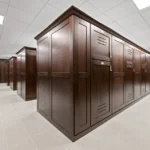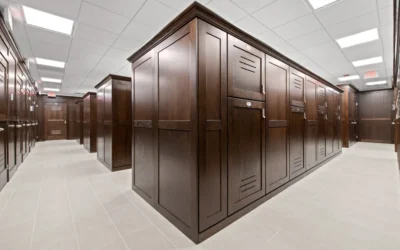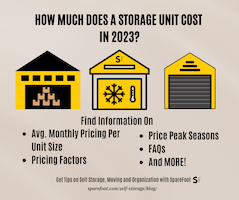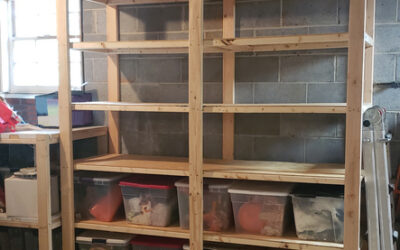Property taxes already are a pain in the budget for self-storage operators, but that pain could become unbearable for operators of facilities in California.
Self-storage operators are keeping a wary eye on a proposal that would overhaul California’s property tax structure — and would bump up property tax bills for their Golden State facilities. One self-storage operator based in California said the tax initiative would be “disastrous” for companies that operate self-storage facilities in the state.
On Oct. 17, a revamp of California’s tax-cutting Proposition 13 qualified for the November 2020 ballot. The ballot measure would dramatically alter the taxation of commercial real estate in the country’s most populous state.
The San Francisco Chronicle explained that under the 40-year-old Proposition 13, residential and commercial property is reassessed only when it’s sold.
“Houses and condominiums tend to change hands every few years, but many large businesses stay put for decades,” the Chronicle reported. “That means some businesses are paying property taxes based on assessments that date from as long ago as the 1970s.”
Fair market value
A March 2018 report from Newport Beach, CA-based Green Street Advisors LLC said the revamp of Proposition 13 would tax commercial real estate in California — including self-storage facilities — based on today’s fair-market value. As it stands now, commercial real estate is assessed based on the purchase price plus a maximum hike of 2 percent a year.
The Green Street report predicted that among self-storage REITs, Glendale, CA-based Public Storage and Salt Lake City, UT-based Extra Space Storage would absorb the biggest financial hits from a Proposition 13 update.
At the time of the Green Street report, California facilities represented 28 percent of Public Storage’s NOI and 26 percent of Extra Space’s NOI. The report said Public Storage would bear a bigger brunt from the tax change because its California portfolio is older than Extra Space’s and, therefore, would see a bigger spike in the taxable value of its facilities.
Gauging the impact
During Extra Space’s Oct. 31 earnings call, Scott Stubbs, the REIT’s chief financial officer, conceded that the ballot measure poses a financial risk, especially since some of the company’s older facilities in California have experienced property tax hikes of just 3 percent a year.
Stubbs said Extra Space has studied how much its California property tax tab is now versus what it could be if its facilities there were assessed at their full value under a Proposition 13 overhaul. However, he didn’t disclose any dollar estimates.
Similarly, Joe Russell, CEO of Public Storage, said the REIT doesn’t know precisely how Proposition 13 would affect its California facilities.
“We’ll track it. We’ll see if it becomes something more realistic,” Russell said on the company’s Oct. 31 earnings call. “We’ll, at that point, give a little more perspective relative to potential impacts, but at this point it’s too soon to tell.”
The potential shift in California’s property tax environment comes as self-storage operators around the country are wrestling with higher property taxes, most notably in Florida, Illinois and Texas.
For the nine-month period that ended Sept. 30, Public Storage reported a 2.9 percent jump in same-store operating expenses, primarily due to higher property taxes. At Extra Space, the comparable increase was 4.9 percent, also due largely to property tax increases.
A world of hurt
Ken Nitzberg, chairman and CEO of Emeryville, CA-based Devon Self Storage, which owns six self-storage facilities in California, said the Proposition 13 shift would be “disastrous” and chaotic, with the extra tax burden for self-storage facilities in the state likely totaling $100 million a year or more and the collective value of facilities falling by millions of dollars.
Companies like Public Storage that have owned facilities in California for several decades would be in “a world of hurt,” he added.
“It would be a complete disaster for the self-storage business,” Nitzberg told the SpareFoot Storage Beat. Under a revised Proposition 13, some self-storage operators would be forced to dramatically raise rental rates or shut their doors, Nitzberg said.
“It’s that simple. There’s no free lunches,” he said.
However, Nitzberg added, consumers likely would balk at paying higher rental rates in the wake of a Proposition 13 tax hike.
“We wouldn’t have any tenants. We wouldn’t have any revenue,” he warned.
While older facilities would see their taxable values rise — along with a potential rise in rental rates — brand-new facilities and newly acquired facilities probably wouldn’t need to boost rental rates, as those properties already are taxed based on up-to-date values, according to Eric Frankel, a self-storage analyst at Green Street.
Regardless, Nitzberg and Frankel envision self-storage operators and other owners of commercial property in California will mount aggressive campaigns to fight the Proposition 13 ballot measure.
“The opposition will be heavily funded,” Frankel said.







